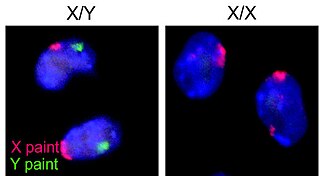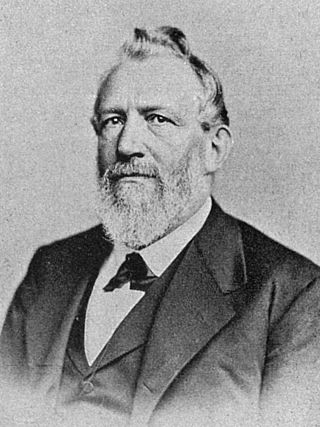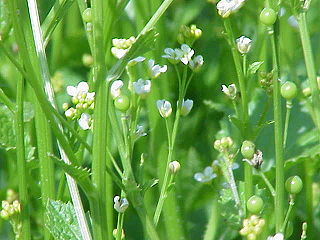External links
- Official website
- animal, Cambridge University Press
- Animal, BSAS
- ISSN 1751-7311
Animal: An International Journal of Animal Bioscience is an academic journal established February 2007 and published monthly by Cambridge University Press.
It is owned by British Society of Animal Science (BSAS), Institut national de recherche pour l’agriculture, l’alimentation et l’environnement (INRAE) and European Association for Animal Production (EAAP).
It is the merge of three journals:

Sex is the trait that determines whether a sexually reproducing organism produces male or female gametes. Male plants and animals produce small mobile gametes, while females produce larger, non-motile ones. Organisms that produce both types of gametes are called hermaphrodites. During sexual reproduction, male and female gametes fuse to form zygotes, which develop into offspring that inherit traits from each parent.

Veterinary medicine is the branch of medicine that deals with the prevention, management, diagnosis, and treatment of disease, disorder, and injury in animals. Along with this, it deals with animal rearing, husbandry, breeding, research on nutrition, and product development. The scope of veterinary medicine is wide, covering all animal species, both domesticated and wild, with a wide range of conditions that can affect different species.

Ernest Thompson Seton was an English-born Canadian-American author, wildlife artist, founder of the Woodcraft Indians in 1902, and one of the founding pioneers of the Boy Scouts of America (BSA) in 1910.

Emil Heinrich du Bois-Reymond was a German physiologist, the co-discoverer of nerve action potential, and the developer of experimental electrophysiology. His lectures on science and culture earned him great esteem during the latter half of the 19th century.
Jay Laurence Lush was a pioneering animal geneticist who made important contributions to livestock breeding. He is sometimes known as the father of modern scientific animal breeding. Lush received National Medal of Science in 1968 and the Wolf Prize in 1979.

Male is the sex of an organism that produces the gamete known as sperm, which fuses with the larger female gamete, or ovum, in the process of fertilization.
The pelvic thrust is the thrusting motion of the pelvic region, which is used for a variety of activities, such as dance, exercise, or sexual activity.
Animal breeding is a branch of animal science that addresses the evaluation of the genetic value of livestock. Selecting for breeding animals with superior EBV in growth rate, egg, meat, milk, or wool production, or with other desirable traits has revolutionized livestock production throughout the entire world. The scientific theory of animal breeding incorporates population genetics, quantitative genetics, statistics, and recently molecular genetics and is based on the pioneering work of Sewall Wright, Jay Lush, and Charles Henderson.

Crambe abyssinica is an annual oilseed crop of the family Brassicaceae. It is mainly cultivated due to the high levels of erucic acid that are contained in its seeds. The crambe oil is used for industrial purposes and its side products can be partly used as animal feed.

Sociality is the degree to which individuals in an animal population tend to associate in social groups (gregariousness) and form cooperative societies.
Comparative cognition is the comparative study of the mechanisms and origins of cognition in various species, and is sometimes seen as more general than, or similar to, comparative psychology. From a biological point of view, work is being done on the brains of fruit flies that should yield techniques precise enough to allow an understanding of the workings of the human brain on a scale appreciative of individual groups of neurons rather than the more regional scale previously used. Similarly, gene activity in the human brain is better understood through examination of the brains of mice by the Seattle-based Allen Institute for Brain Science, yielding the freely available Allen Brain Atlas. This type of study is related to comparative cognition, but better classified as one of comparative genomics. Increasing emphasis in psychology and ethology on the biological aspects of perception and behavior is bridging the gap between genomics and behavioral analysis.

Ewald Rudolf Weibel HonFRMS was a Swiss anatomist and physiologist and former director of the Institute of Anatomy at the University of Bern. He was one of the first scientists to describe the endothelial organelles Weibel–Palade bodies, which are named after him and his Romanian-American colleague George Emil Palade. He was known for his work on the anatomy of gas exchange in lungs on multiple spatial scales using stereology.
British Society of Animal Science (BSAS) is a learned society in the field of animal science, established in 1944 as the British Society of Animal Production.

The Institut national de la recherche agronomique was a French public research institute dedicated to agricultural science. It was founded in 1946 and is a Public Scientific and Technical Research Establishment under the joint authority of the Ministries of Research and Agriculture. From 1 January 2020 the INRA merged with the IRSTEA to create the INRAE.
Catherine Feuillet is a French geneticist who is currently the Chief Scientific Officer of Inari Agriculture, a Cambridge MA based biotechnology company. Feuillet earned a PhD in plant molecular biology on the isolation and characterization of genes involved in wood formation in eucalyptus trees. She started to work on the genetics of disease resistance in wheat in 1994 during her post-doctoral studies at the Swiss Federal Institute for Agroecology. She then moved as a junior group leader to the University of Zurich where she investigated the molecular basis of fungal disease resistance in wheat and in barley and cloned the first leaf rust resistance gene from wheat. In 2004 she was hired as a research director at the Institut National de la Recherche Agronomique (INRA) in France to lead European and international projects on wheat genomics.

Anil Kumar Seth is a British professor of Cognitive and Computational Neuroscience at the University of Sussex.
Genetics Selection Evolution(known as GSE, and abbreviated with Genet. Sel. Evol.) is a bimonthly online-only peer-reviewed scientific journal covers original research on all aspects of genetics and selection in domestic animal species and other species providing results of immediate interest for farm animals' genetics.

Iridium disulfide is the binary inorganic compound with the formula IrS2. Prepared by the direct reaction of the elements, the compound adopts the pyrite crystal structure at high pressure. At normal atmospheric pressures, an orthorhombic polymorph is observed.. The high- and low-pressure forms both feature octahedral Ir centers, but the S–S distances are pressure dependent. Although not practical, IrS2 is a highly active catalyst for hydrodesulfurization.
Raphael "Rafi" Falk was a German-born Israeli geneticist and historian of science. He was professor emeritus of genetics at the Hebrew University of Jerusalem in Israel. His early research was on the genetics of Drosophila; from 1983 he was active in researching the history and philosophy of science, with a particular focus on genetics.
Catia Faria is a Portuguese moral philosopher and activist for animal rights and feminism. She is assistant professor in Applied Ethics at the Complutense University of Madrid, and is a board member of the UPF-Centre for Animal Ethics. Faria specialises in normative and applied ethics, especially focusing on how they apply to the moral consideration of non-human animals. In 2022, she is published her first book Animal Ethics in the Wild: Wild Animal Suffering and Intervention in Nature.